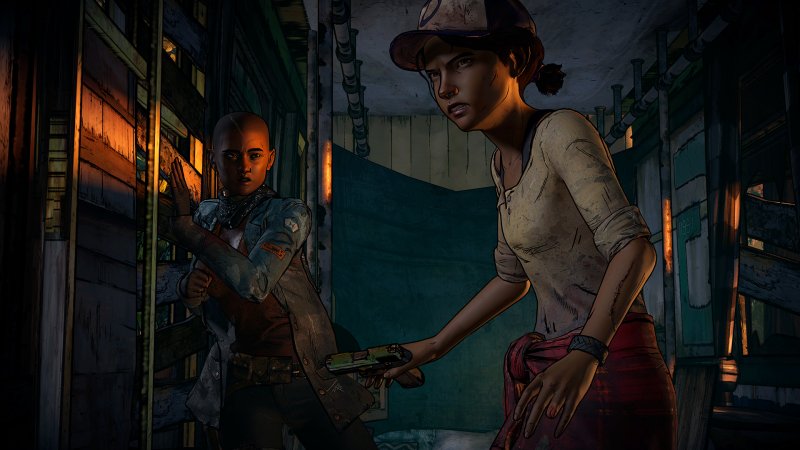Virginia game review
“This game would not have seen the light without a bit of luck, some favorable circumstances or the sacrifice and support, even financial, of friends and family.To realize Virginia was a strange and surprising experience.We hope the result is an equally strange and surprising game “: in these few lines the London studio Variable State summarized the almost two and a half years that were necessary to complete Virginia, a surreal thriller adventure with a first-person view.
The main touchstones, from the point of view of content, are Twin Peaks and the X-Files series.In the recent past we have already seen other titles try to reduce the ludic component to the minimum terms to pursue purely narrative objectives, such as Gone Home , Everybody’s Gone to the Rapture or Firewatch . Virginia, however, prefers a unique approach: to tell an interactive story from the cinematographic cut without resorting to any dialogue. In this way a purely visual representation is enhanced, where the editing and modulation of the soundtrack play a crucial role.
Virginia is a unique adventure and is open to more interpretations
THE TORMENTS OF ANNE TARVER
We are in the summer of 1992 and the disappearance of a boy in a small community in Virginia game leads the FBI to take care of the case. Anne Tarver is assigned to go to the town of Kingdom to carry out the first investigations in the company of the agent Maria Halperin. The external investigation is only one side of the coin, because in the meantime Anne is in charge of controlling the movements of her colleague, who apparently has something to hide.
The creator and screenwriter Jonathan Burroughs tried to tell the story of Anne basing the entire narrative system on the deduction and interpretation of gestures, images and signals from the surrounding environment.
In doing so the plot soon assumes a consistency and very particular, ranging between abstract references, purely psychological projections of the protagonist and sudden changes of plan that end up generating uncertainty and a growing form of restlessness in the observer.
Virginia full gameplay
INTERACTIVE EDITING
Virginia’s events take place within a single week, although the story does not follow a linear path. What is most striking is the way in which the assembly of the scenes was organized, in many ways unexpected when one thinks of a videogame. The frequent changes of context and the use of the camera make it particularly close to the cinematic representations, also thanks to an interactive component really reduced to the bone.
In Virginia it never happens to cross a scenario in its entirety, you are transported without stops from one portion of the story to another, with rapid steps that fragment the actions performed by the user. It follows an alienating effect, focused on cuts and abbreviations of scenes that privilege exclusively the narration.
In this way we cross many more places and we live many different contexts in rapid succession, following a rhythm that is almost never set by the player. The effectiveness of the representation is supported by a soundtrack able to effectively support the communicative dynamism of the work. The continuous changes of rhythm and tone make it possible to frame with greater clarity what is happening on the screen, becoming aware of the state of
The musical part, created by the Prague Philharmonic Orchestra and recorded at Smecky Music Studios, is therefore of fundamental importance in guiding the observation and interpretation of what happens on the screen.As we said the interaction has been deliberately reduced to the minimum terms, all you have to do is activate a sequence of triggers by taking objects, opening doors or addressing other individuals.
Although inspired by graphic adventures, space for space exploration is almost completely absent. The player is in fact led by the hand from beginning to end, with the sole objective of understanding and reconstructing all the narrative pieces. Contrary to what happens elsewhere – think for example to the work of Telltale – in Virginia there are not even moral choices useful to direct the events in one way rather than another: everything has already been predetermined by the script and the user takes on a role almost analogous to the cinematic spectator.



